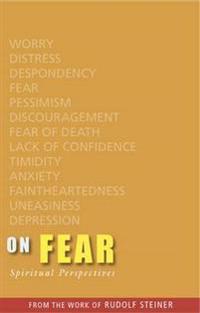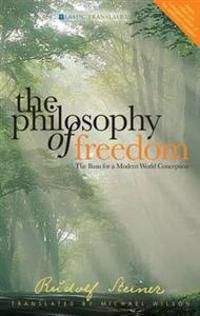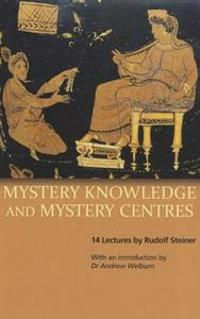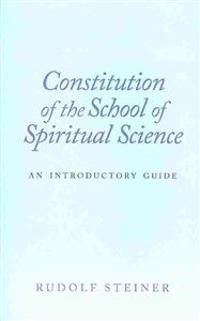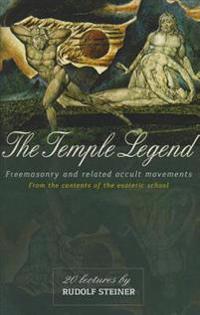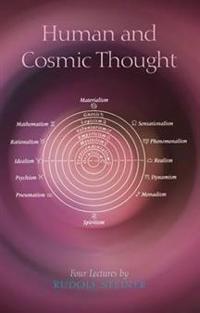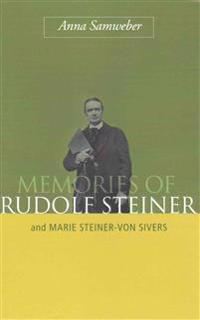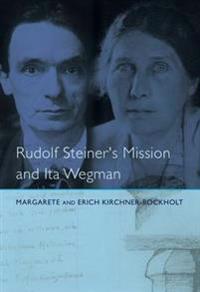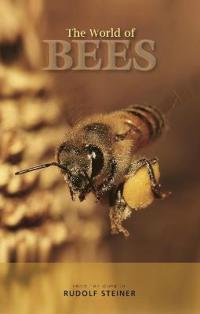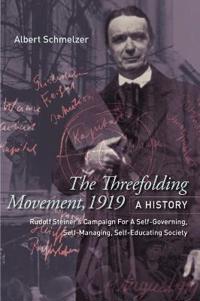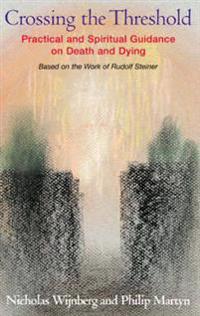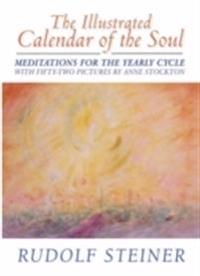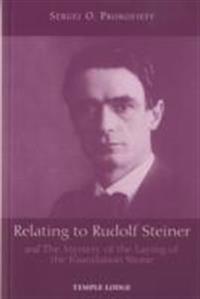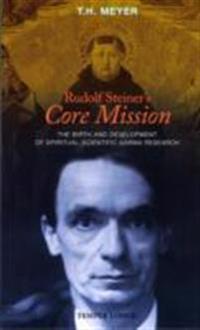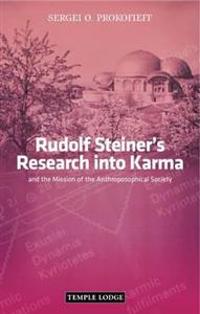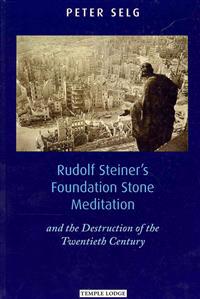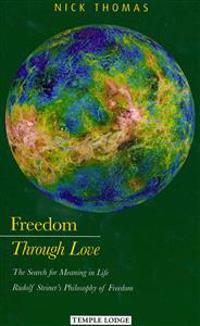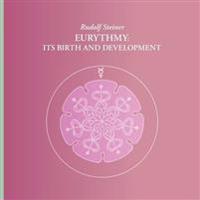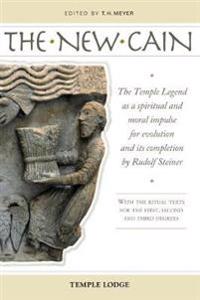Sexuality, Love and Partnership (Häftad)
avRudolf Steiner
ISBN: 9781855842601 - UTGIVEN: 201110'Rudolf Steiner presents the human soul dilemma, split into male and female attributes...but offers a path of development which will eventually lead to overcoming these - what Jung called 'individuation', a merging with the true self or true ego of the human being.' - from the Introduction We live [...]
On Fear (Pocket)
avRudolf Steiner, Taja (COM) Gut, J. (TRN) Collis
ISBN: 9781855842632 - UTGIVEN: 2011-12'We must eradicate root and branch any fear and dread in our soul concerning the future that is coming towards us...We must develop composure with regard to all the feelings and sensations we have about the future; we must anticipate with absolute equanimity whatever may be coming towards us, thinki[...]
The Philosophy of Freedom (Häftad)
avRudolf Steiner
ISBN: 9781855842663 - UTGIVEN: 2011-11Are we free, whether we know it or not? Or is our sense of freedom merely an illusion? Rudolf Steiner tackles this age-old problem in a new way. He shows that by taking account of our own activity of thinking, we can know the reasons for our actions. And if these reasons are taken from our world of [...]
Mystery Knowledge and Mystery Centres (Häftad)
avRudolf Steiner
ISBN: 9781855843776 - UTGIVEN: 2013-05'By bringing the chosen leaders, prophets or priests to confront the powers of life and death, to discover the deeper needs and potential of the human spirit, the Mysteries had kept humanity in touch with the living foundations of experience. For those who went through their processes, the attainmen[...]
Constitution of the School of Spiritual Science (Häftad)
avRudolf Steiner
ISBN: 9781855843820 - UTGIVEN: 2013-07Introduction to the Mystery Plays of Rudolf Steiner (häftad)
ISBN: 9781855844025 - UTGIVEN: 2014-08'The great importance of these plays is not that we are given many thoughts to further our understanding of anthroposophy, but that we are shown the transforming power of spiritual striving in individual lives, and especially the development in human relationships through an awareness of the forces [...]
The Temple Legend (Häftad)
avRudolf Steiner
ISBN: 9781855844100 - UTGIVEN: 2014-12spacer In these unique lectures, given to members of his Esoteric School (1904-14), Rudolf Steiner's main intention is to throw light on the hidden content of the picture-language of myths, sagas and legends. Pictures, he explains, are the real origin of all things - the primeval spiritual causes. I[...]
Human and Cosmic Thought (Häftad)
avRudolf Steiner
ISBN: 9781855844162 - UTGIVEN: 2015-02Rudolf Steiner demonstrates that there are twelve main philosophical standpoints, and that the future of philosophy rests not upon defending one and refuting the others, but in learning to experience the validity of them all. What convinces us of the truth of a certain point of view? Why do we find[...]
Memories of Rudolf Steiner (häftad)
ISBN: 9781855845183 - UTGIVEN: 2015-09'I rang the bell, the door opened, and there stood Rudolf Steiner in person. I was so taken aback that I dropped the basket which burst open and all my clothes and underclothes, together with my other belongings, were lying at the feet of the Doctor. A ball of wool got away and rolled between Dr Ste[...]
Rudolf Steiner's Mission and Ita Wegman (häftad)
ISBN: 9781855845275 - UTGIVEN: 2016-05"Because I felt that he knew how things were, I said simply: 'I will stay with you.' Then he said significant things to me that I was not to repeat. A very ancient karma existing between him and me was renewed. It was not until many years later that I first realized the significance of that meeting.[...]
The World of Bees: From the Work of Rudolf Steiner (häftad)
ISBN: 9781855845404 - UTGIVEN: 2018-01"The whole hive is really pervaded by the life of love. The individual bees relinquish love but develop it instead throughout the hive. And so we start to understand bee existence if we recognize that the bee lives in an air, an atmosphere, that is entirely impregnated with love." --Rudolf Steiner F[...]
The Threefolding Movement, 1919: A History: Rudolf Steiner's Campaign for a Self-Governing, Self-Managing, Self-Educating Society (häftad)
ISBN: 9781855845411 - UTGIVEN: 2017-12Following World War I, Germany faced a period of revolutionary upheaval and general unrest. In the midst of these tumultuous events, Rudolf Steiner's pioneering movement for social threefolding rallied around a unique conception. Its three principal goals were to promote human rights and equality in[...]
Rudolf Steiner
ISBN: 9781902636283 - UTGIVEN: 2002-04In many ways, Rudolf Steiner is the forgotten genius of recent times. A powerful thinker, who developed an intricate spiritual philosophy based on his ability to research and perceive spiritual dimensions, Steiner is perhaps best known today for his legacy to education, medicine and agriculture. But[...]
Crossing the Threshold: Practical and Spiritual Guidance on Death and Dying, Based on the Work of Rudolf Steiner (häftad)
ISBN: 9781902636429 - UTGIVEN: 2003-11Based on the Work of Rudolf Steiner When faced with the prospect of death--our own or someone else's--there is often little time to prepare. This book presents a wealth of practical and spiritual guidance on all aspects of death and dying. Writing from the perspective of Rudolf Steiner's spiritual [...]
Illustrated Calendar of the Soul (Inbunden)
avRudolf Steiner
ISBN: 9781902636627 - UTGIVEN: 2004-11Rudolf Steiner's beautiful meditative verses for the yearly cycle have been used by countless people over the years. Their purpose is to awaken a feeling of unity with nature, and at the same time to stimulate a discovery of self. In listening to the changing language of the year and awakening a pro[...]
Relating to Rudolf Steiner
ISBN: 9781902636955 - UTGIVEN: 2008-06Even within the Anthroposophical Society and movement, people's relationship to Rudolf Steiner is weakening and dissipating. This is problematic, says Prokofieff, as the future of both the Society and movement is dependent on a sufficient number of people aspiring to and realizing a true spiritual c[...]
Rudolf Steiner in Britain (Pocket)
avCrispian Villeneuve
ISBN: 9781906999032 - UTGIVEN: 2009-10Rudolf Steiner, the founder of Anthroposophy, spent some five months of his life in Britain, visiting it ten times between the years 1902 and 1924. With the exception of German-speaking countries, the longest time Steiner spent abroad was in Britain, a place he clearly considered as central to his w[...]
Rudolf Steiner's Core Mission (Häftad)
avT.H. Meyer
ISBN: 9781906999100 - UTGIVEN: 201003Rudolf Steiner's core mission, repeatedly delayed due to the incapacity of colleagues, was to pursue contemporary spiritual-scientific research into the phenomena of reincarnation and karma. This stimulating book describes the winding biographical path this mission took, and in particular focuses on[...]
Rudolf Steiner's Research into Karma (Häftad)
avSergei O. Prokofieff
ISBN: 9781906999186 - UTGIVEN: 201010In this inspiring lecture, addressed primarily to the anthroposophic movement, Prokofieff gives an overview of how the spiritual hierarchies and Christ, the Lord of Karma, work in the ordering of human karma. We are led to the karma and mission of the Anthroposophical Society, with indications as to[...]
Rudolf Steiner's Foundation Stone Meditation (Pocket)
avPeter Selg, Pauline (TRN) Wehrle, Peter Selg
ISBN: 9781906999414 - UTGIVEN: 2013-01Rudolf Steiner spoke the Foundation Stone meditation at the Christmas Conference of the General Anthroposophical Society in 1923, giving it to the Society's members for the strengthening of their forces. The meditation's words contain, to quote Sergei O. Prokofieff, 'the quintessence of the whole of[...]
Rudolf Steiner's Sculptural Group
ISBN: 9781906999452 - UTGIVEN: 2013-08Saved by good fortune from the flames that engulfed the first Goetheanum, Rudolf Steiner's wooden sculpture of the Christ - 'the Representative of Humanity' - standing between the adversary forces of Lucifer and Ahriman, remains intact and on display, although unfinished, to this day. Unique in [...]
We Are the Revolution!: Rudolf Steiner, Joseph Beuys, and the Threefold Social Impulse (häftad)
ISBN: 9781906999520 - UTGIVEN: 2013-07Freedom Through Love: The Search for Meaning in Life: Rudolf Steiner's "philosophy of Freedom" (häftad)
ISBN: 9781906999575 - UTGIVEN: 2014-03What does it mean to be human? What is knowledge? What is freedom? Philosophy offers answers to these questions. However, are its rarefied arguments relevant to people today or merely abstractions? Aren't we really more occupied with daily survival and the unending problems that surround our human r[...]
The New Cain: The Temple Legend as a Spiritual and Moral Impulse for Evolution and Its Completion by Rudolf Steiner (häftad)
ISBN: 9781912230013 - UTGIVEN: 2017-06Who was Cain and what does he represent? The first part of this book invites us to revise the traditional, biblical, view of Cain as his brother's murderer. Rudolf Steiner shows how the original Cain was ready to sacrifice his being to something higher, but this pure impulse was perverted into the d[...]


